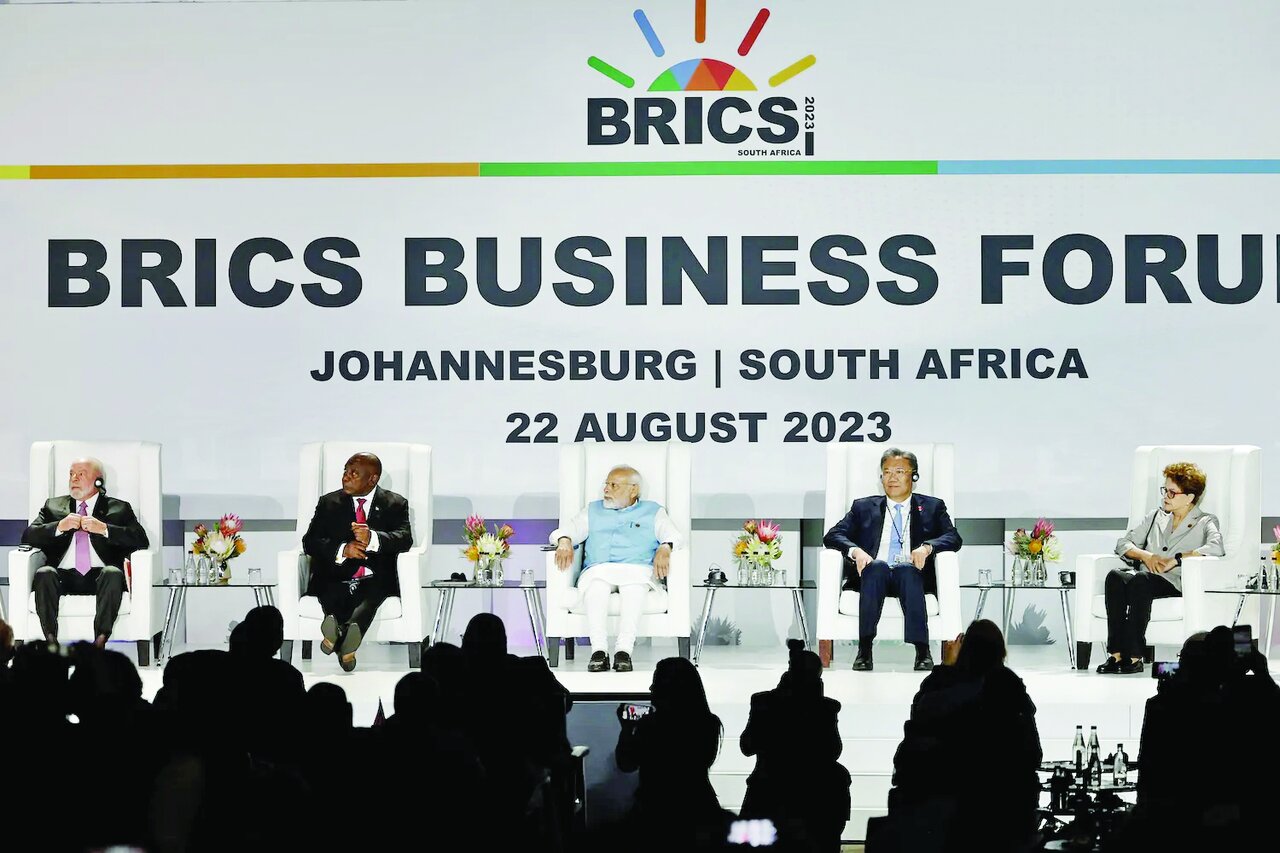Another sign of ‘new order’

TEHRAN - Iran's membership in BRICS can be viewed from various perspectives. The first and most important point about Tehran's membership is that it shows that the United States is no longer the undisputed global superpower that determines where anyone should sit or that anyone has no right to sit at all.
The United States has been openly seeking Iran's diplomatic isolation for years. Iran's membership in BRICS, following its membership in the Shanghai Cooperation Organization, is a lifeline to this hostile US policy against Tehran.
This very point is a piece of a larger puzzle called the “new world order”. While some BRICS members such as China and India do not openly talk about efforts to disrupt the existing order, the path they are on is clearly this.
Just over half a century ago, with the agreement between the United States and Saudi Arabia, the dollar gradually became one of the main tools of US hegemony in the global arena. The role of this tool has become much more prominent in US foreign policy over the past two decades. In fact, the United States has turned the dollar into a weapon. The victims of this deadly weapon are not less than those of US bombs. Washinton finds an excuse to sanction any country whose decisions and actions are not pleasing to the United States.
What we know today as the global order entirely centers around the US dollar.
Economic decisions by BRICS to marginalize the dollar are nothing but challenging the main pillar of the US global order. Not all BRICS members are subject to US sanctions, but they know well that the threat of sanctions, like the "sword of Damocles", hangs over them directly or indirectly and prevents them from deciding or acting freely. Of course, combating the hegemony of the dollar is not limited to BRICS. The process of de-dollarization has been going on for a long time, and the danger bell has been sounding for the United States.
Two months ago, JPMorgan, the largest bank in the United States, warned that "some signs of de-dollarization are emerging."
While Iran's membership in BRICS may not solve all of its problems, it does provide a tool for Tehran in any potential negotiations with the US. Expanding diplomatic and economic ties with other countries or blocs will reduce the impact of US pressure on Iran and strengthen its position at the negotiating table.
Additionally, BRICS's invitation to Saudi Arabia, Egypt, and the UAE suggests that key players in the Middle East and North Africa are no longer willing to put all their eggs in Washington's basket. It is worth noting that Saudi Arabia facilitated the dollar's dominance over half a century ago with oil/dollar trade.
Overall, the developments in Johannesburg were good news for Iran but not for the US.
Mohammad Sarfi is Editor-in-Chief Tehran Times
Leave a Comment